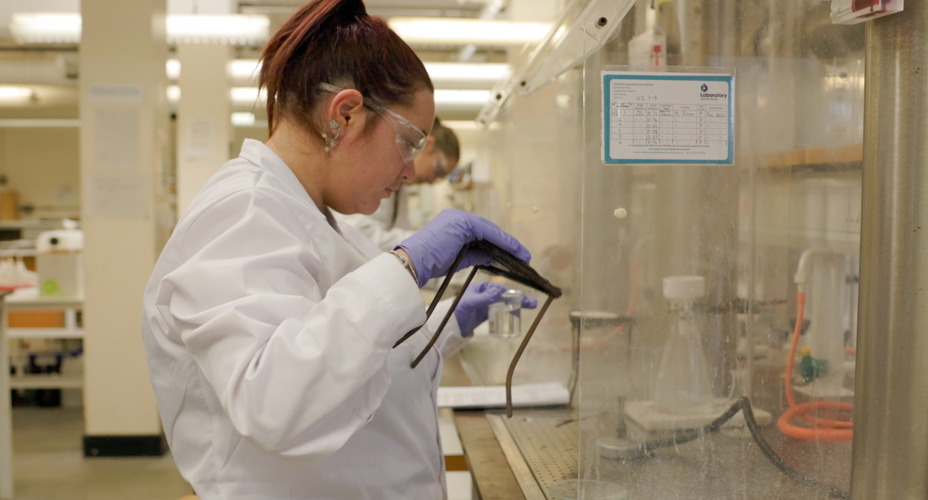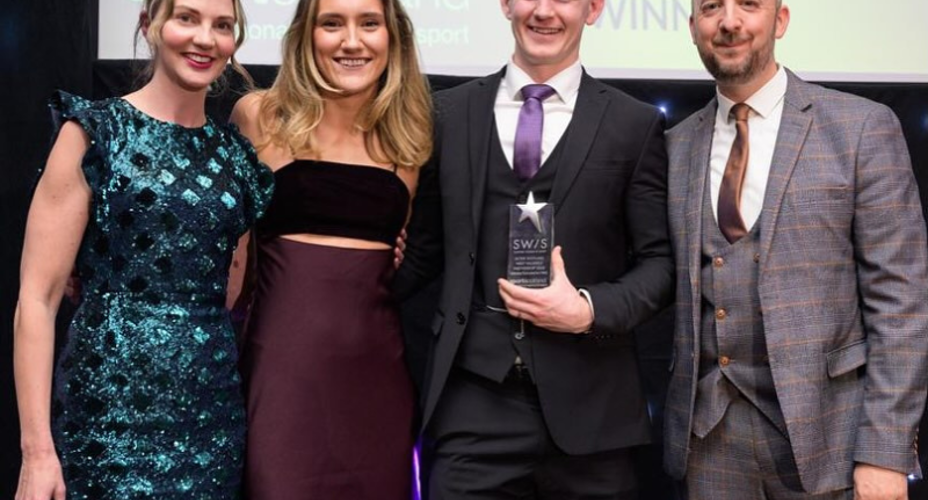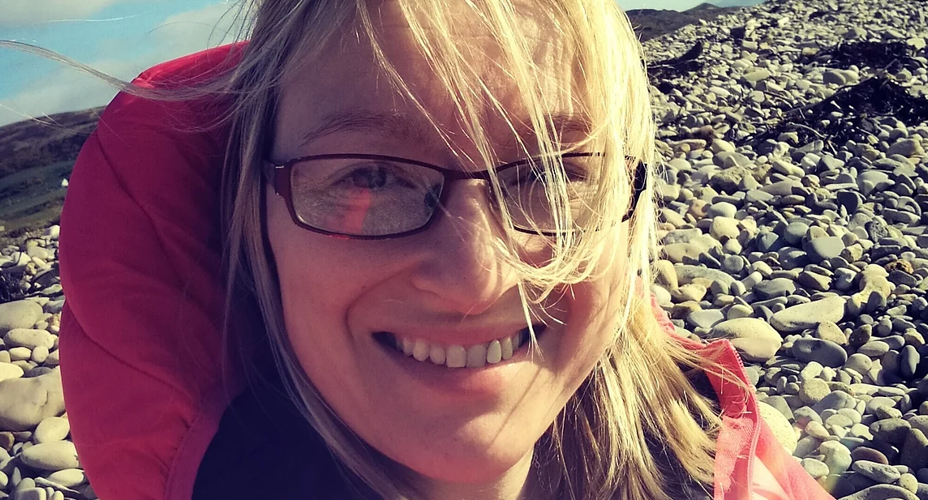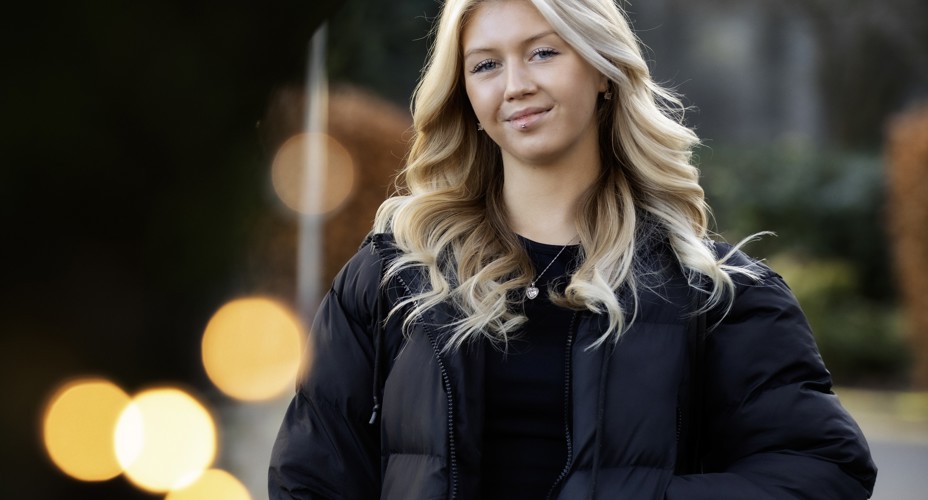Friday 09 02 2024

To celebrate International Day of Women and Girls in Science, University of the West of Scotland (UWS) is shining a light on the inspiring students and academics who are making their mark and paving the way for future generations of women and girls to succeed in the field of science and STEM.
UWS is committed to encouraging more women and girls to pursue careers in science. At UWS, we value equality and diversity, and strive to create an inclusive culture which celebrates difference and unlocks talent in our staff and students.
International Day of Women and Girls in Science is an annual observance adopted by the United Nations General Assembly, to promote the full and equal access and participation of females in science, technology, engineering, and mathematics.
Women and girls in science in numbers at UWS
At UWS, we have almost 2,000 new Scottish female science undergraduates, across all four of our campuses in Scotland, in each of the last three years.
We are also supporting women to further their education and careers in this field, helping almost 400 female science students graduate with a Masters degree in the last three years.
We have also produced 29 new female PhD students in science subjects over the last three years, from 10 different countries. Those students are going on to make a real impact in their fields, with more than 80% of our female science students in employment or further study 18 months after graduating.
Highlighting our mission of widening access to higher education for those from disadvantaged backgrounds, we are proud that nearly 30 percent of women in science subjects at UWS are from the 20 percent most deprived areas in Scotland.
UWS’ commitment to equality and diversity and the drive to create an inclusive culture which celebrates difference and unlocks talent, is demonstrated in the Female INSPIRES project. This international project focuses on tackling the gender imbalance in science, technology, engineering and maths (STEM). Academics from UWS work with others from universities around the world to create an online support platform for female STEM early career researchers from Development Assistance Committee countries.
Across the University, there are numerous, fantastic examples of inspiring women and girls in science, from students to academics to university leadership to alumni.
UWS commitment to women in sport celebrated
Our pioneering partnership with Glasgow City Football Club and Athlete Focused has recently been celebrated with a Scottish Women in Sport Award.
The partnership, which is committed to advancing women in sport by promoting and supporting female athletes and sports scientists, has been awarded the Most Valuable Partnership of the Year accolade at the 2023 ceremony.
Discussing the award win, Dr Laura Forrest, Senior Lecturer in Sport and Exercise Science, said: “We are delighted that our partnership with Glasgow City Football Club and Athlete Focused has been recognised with this award. Our partnership evidences the dedication we have as a University to equality in sports.
“These partnerships not only improve the career prospects of our talented female sports scientists, but we also shine a light on the importance of research which directly supports the advancement of women’s football and sport more generally.”

Dr Lynsay Matthews, Lecturer in Public Health in the School of Health and Life Sciences
Dr Lynsay Matthews leads UWS research on Premenstrual Dysphoric Disorder (PMDD).
PMDD is a severe mood disorder affecting 1 in 20 women (and people assigned female at birth). In the UK, over 824,000 women have PMDD, of which 593,600 will experience suicidal ideation, 412,000 will self-injure and 275,000 will attempt suicide.
Lynsay’s research aims to inform interventions that support people with PMDD, impact clinical practice, and improve quality of life.
Lynsay and colleagues launched the UK PMDD research agenda in May 2023, working alongside stakeholders to identify priorities for PMDD research. They collected insight from people with PMDD, health professionals, researchers, support organisations and emergency crisis personnel. Five important topics were highlighted: (1) diagnosis and treatment of PMDD; (2) best psychological approaches for support; (3) suicide and self-harm prevention; (4) the impact of PMDD on life; and (5) support for hormonal ‘trigger’ events such as perimenopause.

Alesha McGlone, 1st Year BSc (Hons) Sport & Exercise Science student
Alesha McGlone is one of our many female sport science students looking to blaze a trail in the industry. A first-year student studying on our BSc (Hons) Sport & Exercise Science programme, Alesha is loving her studies so far and is enthusiastic about where her degree will take her.
“UWS is such an amazing place to study sport,” says Alesha.
Alesha points to the lecturers and professional recognition* of the sport programmes as the main reasons she has such high hopes for her career. “UWS has such a range of lecturers from all different aspects of sport, and everything they do is for the benefit of students. They have excellent connections across the industry and they share those with us, which I think will open so many doors for me.
“The CIMSPA and BASES recognition really sets us apart from other people who will be applying for jobs and that really improves my prospects.”
*UWS have worked with the Chartered Institute for the Management of Sport and Physical Activity (CIMSPA) to achieve endorsement against industry professional standards for its undergraduate degree programmes in sport. Our BSc (Hons) Sport & Exercise Science programme is also endorsed by the British Association of Sport and Exercise Sciences (BASES) through their Undergraduate Endorsement Scheme (BUES).
